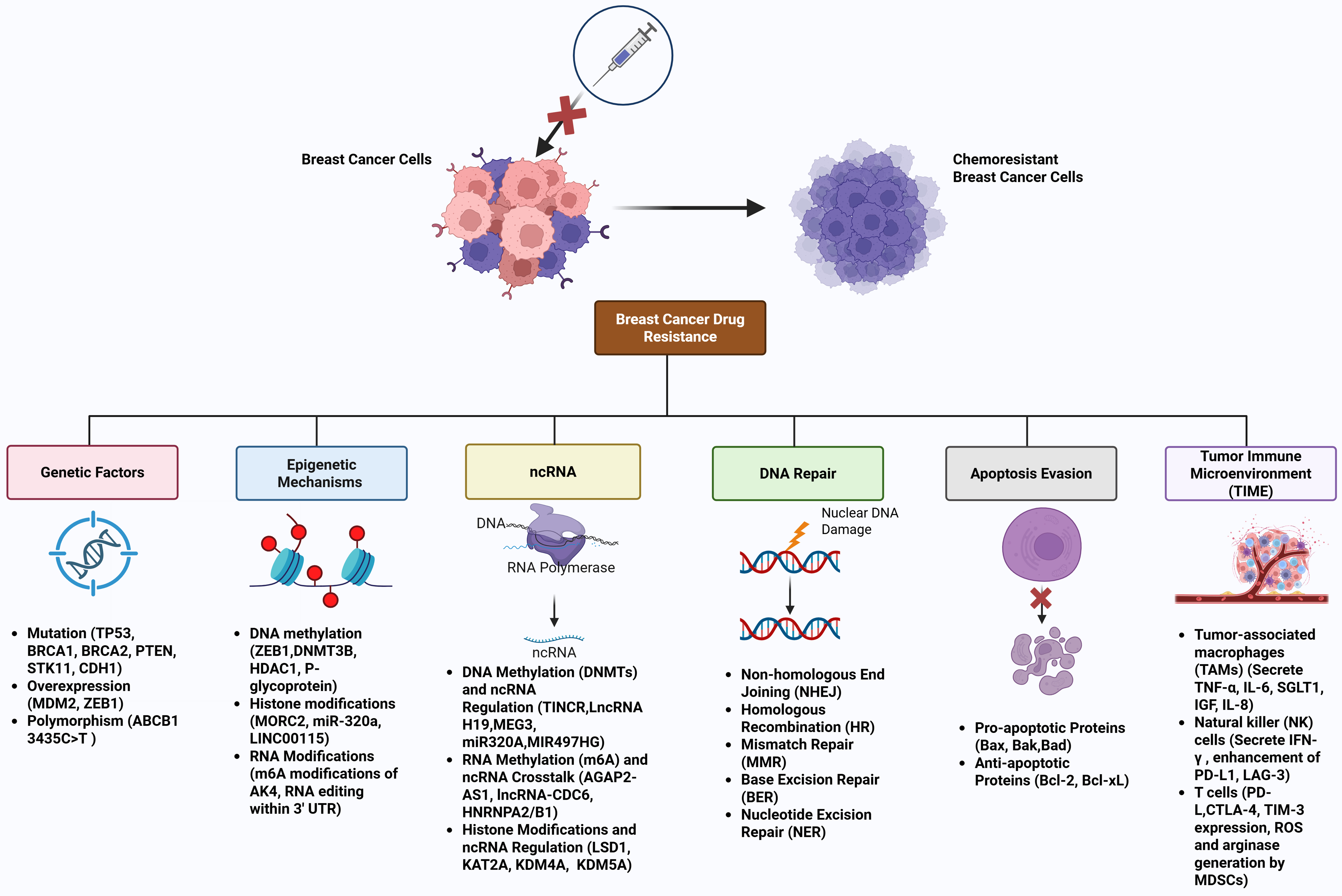fig4
Figure 4. Major drivers of breast cancer therapeutic resistance. This schematic diagram illustrates the multifaceted mechanisms underlying therapeutic resistance in breast cancer, encompassing genetic factors, epigenetic mechanisms, ncRNAs, apoptosis evasion, DNA repair, and the TIME. Genetic Factors, such as oncogenic mutations (e.g., PTEN, TP53) and amplifications (e.g., HER2, MDM2), activate proliferative pathways like PI3K/AKT/mTOR, conferring resistance to chemotherapies and targeted therapies. Epigenetic mechanisms, involving aberrant DNA methylation by DNMTs and histone modifications (e.g., EZH2-mediated H3K27me3, LSD1-driven demethylation), silence tumor suppressors (e.g., PTEN, GREB1), promoting therapeutic resistance. lncRNAs (e.g., HOTAIR, MALAT1, CDC6) and miRNAs (e.g., miR-320a, miR-21) modulate oncogenic signaling via m6A modifications, enhancing EMT and chemoresistance. Furthermore, upregulation of anti-apoptotic proteins (e.g., Bcl-2) and downregulation of pro-apoptotic factors (e.g., Bax) via epigenetic regulation impede chemotherapy-induced cell death. In addition, activation of robust repair pathways (e.g., HR, NHEJ, BER, NER, MMR) in resistant cells counteracts chemotherapy-induced DNA damage (e.g., DSBs, crosslinks). Moreover, immunosuppressive elements, including T cell exhaustion (PD-1/CTLA-4 upregulation), MDSC infiltration, and checkpoint adaptation (PD-L1 overexpression), create a resistant TME, particularly in TNBC and HER2-positive subtypes. The interplay of these drivers underscores the complexity of therapeutic resistance, highlighting potential targets for precision oncology. Created in BioRender. Malhotra, D. (2025) s1b4tq4. ncRNAs: Non-coding RNAs; TIME: tumor immune microenvironment; MDM2: mouse double minute 2; GREB1: growth-regulating estrogen receptor binding 1; HR: homologous recombination; NHEJ: non-homologous end joining; BER: base excision repair; NER: nucleotide excision repair; MMR: mismatch repair; DSBs: double-strand breaks; TME: tumor microenvironment; TNBC: triple-negative breast cancer.












